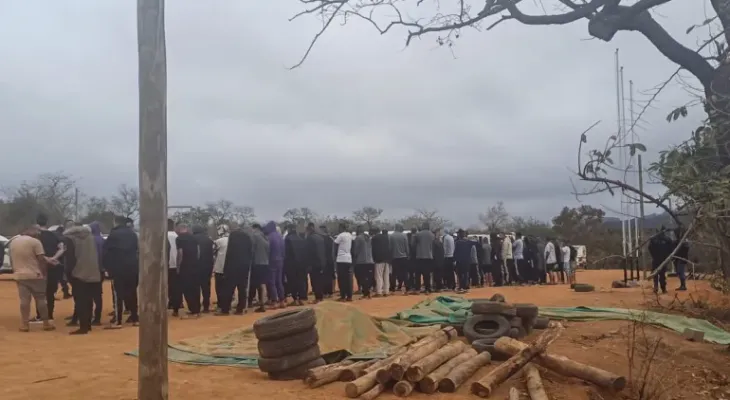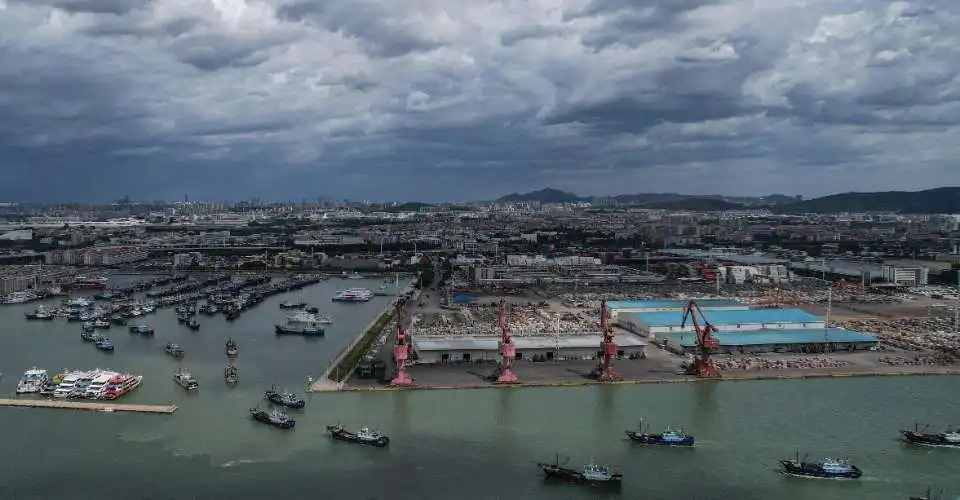
He discussed energy security and other issues in Saudi Arabia and the United Arab Emirates on Wednesday.
He said a global coalition was needed “to deal with the new reality we face”.
But critics have expressed concerns about the human rights records of the countries.
Last weekend, Saudi Arabia carried out a mass execution of 81 men in one day, and its Crown Prince Mohammed bin Salman has been implicated in the murder of Washington Post journalist Jamal Khashoggi in 2018.
On Wednesday, Saudi news agency SPA announced three further executions, in what the Reprieve group described as a “provocative act” designed to “flaunt the Crown Prince’s power”.
Labour leader Sir Keir Starmer said “going cap in hand from dictator to dictator is not an energy strategy”.
Hatice Cengiz, the fiancee of Mr Khashoggi, told the BBC Mr Johnson should not be “doing deals” with Crown Prince Salman unless he insisted “on the truth and justice for Jamal’s murder”.
Labour deputy leader Angela Rayner told MPs Mr Johnson was on “a begging mission to the Saudi prince” after failing to invest in home-grown energy.
But Mr Johnson said if western countries wanted to “avoid being blackmailed” by Russia’s President Vladimir Putin, they needed to move away from using his country’s fossil fuels and explore other partnerships.
Asked about working with a government with a questionable human rights records, the prime minister said: “I’ve raised all those issues many, many times – since I was foreign secretary and beyond and I’ll raise them all again today.”
He pointed towards Saudi Arabia announcing a £1bn investment in green aviation fuel in the UK as “the kind of thing we want to encourage”.
That does not mean, he added, that “we can’t stick to our principles and raise those issues that we all care about”.
Foreign Secretary Liz Truss also defended the trip on Breakfast, insisting the UK was “absolutely right” to “look at alternative sources of oil and gas”.
Mr Johnson landed at Abu Dhabi airport in the UAE, where he was met by British Ambassador to the UAE Patrick Moody.
He was guided through a guard of honour before meeting Abu Dhabi Crown Prince Mohammed bin Zayed.
Mr Johnson then travelled to the Saudi capital, Riyadh, where he met Crown Prince Salman and Saudi ministers.
‘Flawed argument’
Recent executions, including those of 81 men, in Saudi Arabia has drawn criticism from MPs and human rights groups.
Tory MP Crispin Blunt said the executions left Mr Johnson with “exquisite difficulties” in asking Saudi Arabia for help with oil supplies.
One of the world’s largest oil producers and influential on the international stage, Saudi Arabia is ruled by a monarchy which restricts political rights and civil liberties.
The rise of Crown Prince Salman as de-facto ruler in 2017 has seen moves towards liberalising some laws and diversifying the economy.
But the Saudi government’s image has been damaged in recent years, particularly by the assassination of the prominent US-based journalist in 2018, Mr Khashoggi.
He was murdered at the Saudi consulate in Istanbul. Saudi Arabia said he had been killed in a “rogue operation” by a team of agents sent to persuade him to return to the kingdom.
But a UN investigator concluded that Mr Khashoggi was “the victim of a deliberate, premeditated execution” for which the Saudi state was responsible. Crown Prince Salman denied any role.
Mr Khashoggi’s fiancee Ms Cengiz, who accompanied him to the entrance of the consulate, said Mr Johnson’s rationale for meeting Crown Prince Salman was a “flawed argument”.
He “should not run from the arms of one unpredictable tyrant” to another, she said.
“Johnson must demand to know the truth and to get justice for the brutal killing of Jamal and for all human rights abuses,” Ms Cengiz said. “He cannot act as though nothing has happened. This would be so shameful.”
Opposition parties and some Conservatives too are uneasy about the government’s association with Saudi Arabia – and have been for years.
That’s more acute after dozens of executions there a few days ago.
Labour leader Sir Keir Starmer said going cap in hand from dictator to dictator is no substitute for an energy strategy.
But for the government, handling the fallout of the conflict in Ukraine means what are described as “hard-headed” decisions, even if it’s “distasteful”.
With huge diplomatic and economic forces at play, there are no straightforward options.
Disentangling Russia’s economy from the West’s may seem a diplomatic no-brainer, but the cost and complications of doing so simply can’t be ignored.
The energy talks come during a global spike in energy prices driven by tight supplies, President Putin’s invasion of Ukraine and western attempts to reduce dependence on Russian oil and gas.
Saudi Arabia is the largest producer in the oil cartel Opec and has the spare capacity to help lower prices by increasing supplies.
Mr Johnson was hoping to convince Crown Prince Salman to boost his kingdom’s oil production and garner his support for action against Russia.
Ms Truss said while the UK did not agree with “every single policy of Saudi Arabia or the UAE”, they “do not pose a threat to global security in the way that Vladimir Putin does”.
“We need to bring those countries into the circle of influence of the UK and pull countries away from dependence on Russia,” she said.
Muted reaction
Saudi Arabia, the UAE and other Gulf states have so far refrained from overtly condemning Russia, although they did vote in favour of a UN resolution denouncing the invasion of Ukraine.
Their muted reaction has caused some consternation among western nations including the UK, Dr Tobias Borck, a researcher of Middle East security at the RUSI think tank says.
“In the past 10 years this idea has taken hold in the Gulf that the West doesn’t stand for anything anymore, that the West is no longer willing to wield its power in the world,” Dr Borck told the media.
He said Mr Johnson’s trip was a vital opportunity to rebuild relations with the Gulf states and convey to them why the invasion of Ukraine “is a watershed moment for European security”.
Meanwhile, Russian attacks on Ukrainian cities continued as the worst war Europe has seen in decades entered its 21st day.
The attacks came as Ukraine and Russia held peace talks, after Ukrainian President Volodymyr Zelensky conceded that Nato membership was not on the table, in an apparent concession to Moscow.
Mr Zelensky said the talks were becoming “more realistic”, while Russian Foreign Minister Sergei Lavrov said there was “some hope for compromise”.
The Ukrainian president addressed the US Congress by video link, having made similar appearances in parliaments across Europe, including the UK’s.
In a historic speech, he invoked the 2001 terror attacks on the US and urged President Joe Biden to give more military aid to Ukraine.






